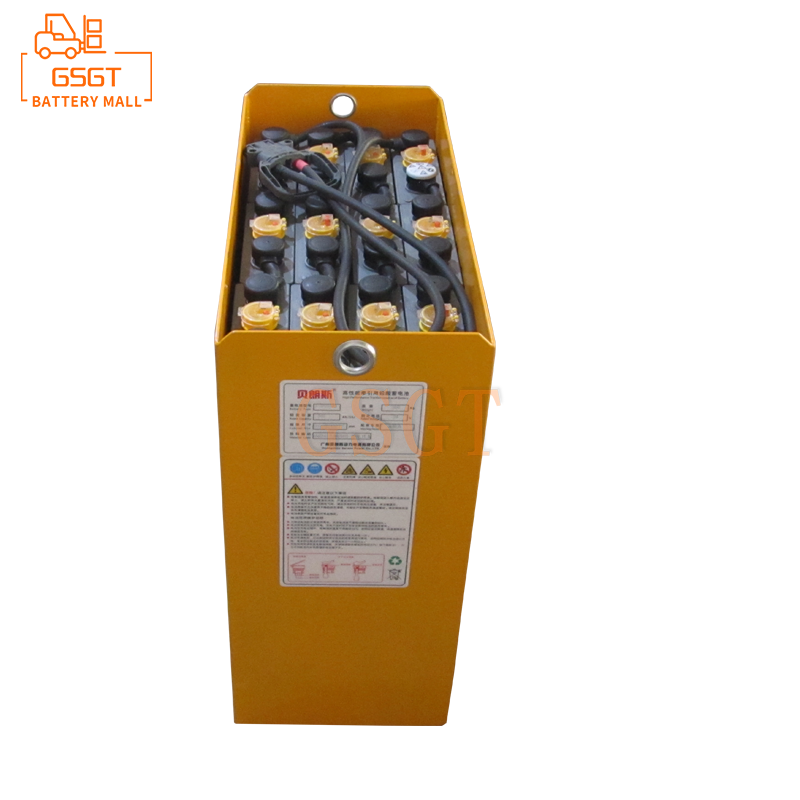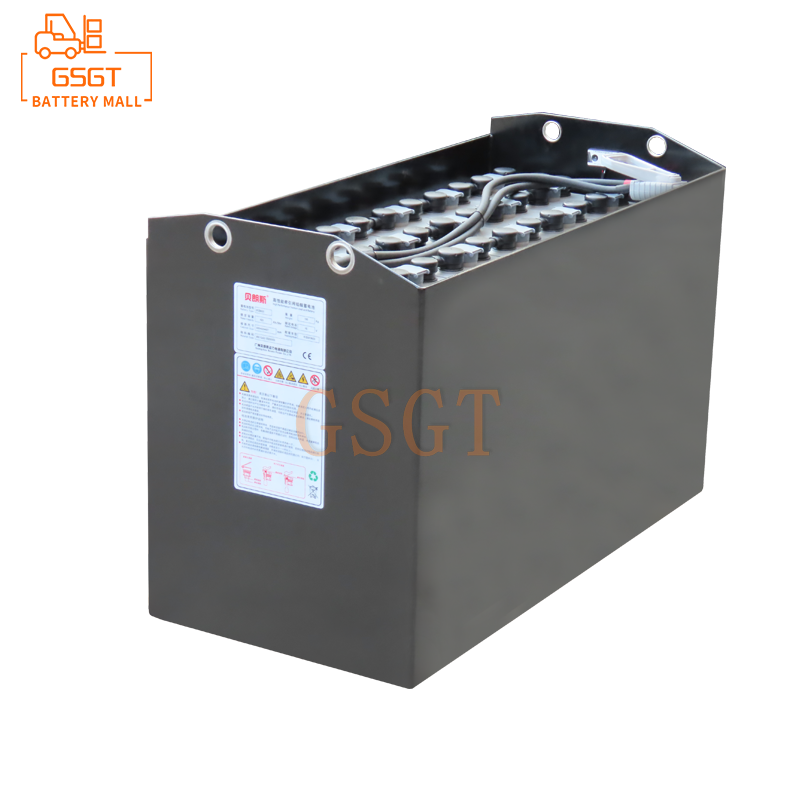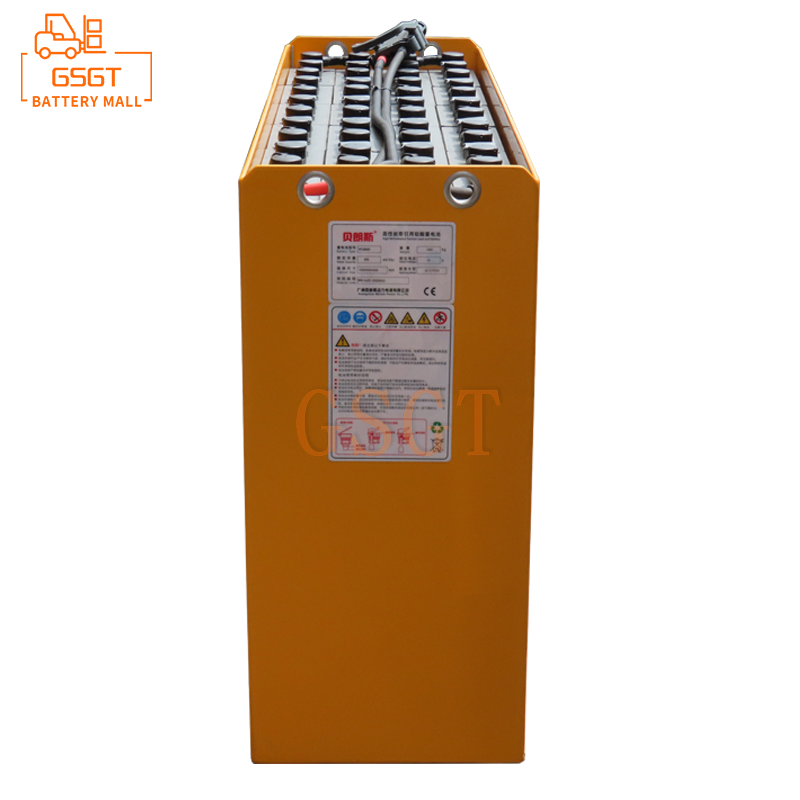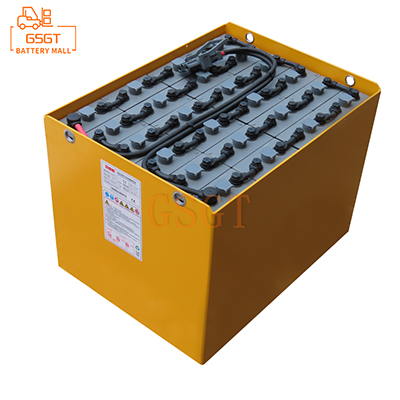Time:2025-04-17 09:54:54
Browse:640
Introduction
In the field of modern logistics and industrial production, forklift is a key material handling equipment, and the choice of its power source has far-reaching significance on equipment performance, operating costs and environmental impact. At present, lead-acid batteries and lithium batteries are the two most commonly used power sources for electric forklifts. Although lithium batteries have attracted much attention in recent years due to their advanced technical characteristics, lead-acid batteries still occupy an important position in forklift applications. This article will make an in-depth comparison of all aspects of lead-acid batteries and lithium batteries in forklift applications to show the unique advantages of lead-acid batteries.
1. Comparison of energy characteristics
(1) Stability of energy output
Lead-acid battery technology is mature, can provide stable voltage and current output during charge and discharge process. In the operation of forklift trucks, whether it is the large current demand at the start of the moment, or the stable power supply during the continuous handling process, the lead-acid battery can be well met. The discharge curve is relatively gentle, which can keep the power performance of the forklift relatively stable in the whole working cycle, avoid damage to the motor and control system of the forklift due to voltage fluctuations, ensure the smooth operation of the forklift, and improve the safety and accuracy of cargo handling.
Although the energy density of the lithium battery is high, the voltage will decrease significantly in the late discharge period, especially when the power is low, which may lead to the instability of the power output of the forklift truck and affect the efficiency of the operation. In some forklift operation scenarios that require very high dynamic stability, such as fine stacking operations between narrow shelves, this feature of lithium batteries can be a disadvantage.
(2) Low temperature performance
At low temperatures, although the performance of lead-acid batteries will be reduced, they still have certain advantages compared to lithium batteries. Lead-acid battery electrolyte is sulfuric acid solution, its freezing point is low, in a certain degree of low temperature environment, can still maintain good ion conductivity, maintain the basic operation of forklift.
Lithium batteries are more sensitive to temperature, and low temperature will significantly reduce the battery activity, resulting in increased internal resistance of the battery, reduced charging and discharging efficiency, and significantly reduced available capacity. In low temperature environments, lithium battery forklifts often require additional heating and insulation devices to maintain battery performance, which not only increases the cost of equipment, but also increases energy consumption.
2.Safety performance comparison
(1) Thermal stability
The heat stability of lead-acid battery is better. The internal chemical reaction is relatively mild, the heat generated in the normal charge and discharge process is less, and the battery material itself has good heat resistance. Even in the case that the battery temperature increases slightly due to the continuous operation of the forklift truck for a long time, the lead-acid battery can maintain stable performance and is not prone to serious safety accidents such as thermal runaway.
Lithium batteries generate more heat during charging and discharging, especially in fast charging or high rate discharge, and the battery temperature rises significantly. If the thermal management system design of lithium battery is not perfect, it is easy to appear thermal runaway phenomenon in high temperature environment or long time high load working state, causing battery combustion or even explosion, which brings great safety risks to forklift operation.
(2) over-charge and over-discharge protection
In the long-term development process of lead-acid batteries, a more mature overcharge and overdischarge protection mechanism has been formed. When the battery is charged to a certain extent, the chemical reaction inside it tends to calm down, preventing overcharging and causing battery damage. In terms of overdischarge, the plate material and electrolyte characteristics of the lead-acid battery enable the battery to reduce its performance relatively slowly when it is over-discharged, giving the user a certain buffer time to charge in time, and reducing the risk of irreversible damage to the battery due to overdischarge.
Lithium batteries need to rely on a complex and sophisticated battery management system (BMS) to achieve over-charge and over-discharge protection. Although the BMS can monitor the status of the battery in real time and control it accordingly, once the BMS fails or misjudgment occurs, the lithium battery is prone to serious damage in the case of overcharge and overdischarge, and even cause safety accidents.
3. Cost-benefit comparison
(1) Procurement costs
The procurement cost of lead-acid batteries is relatively low. Its production technology is mature, the raw material lead resources are abundant and the price is relatively stable. The price of a set of lead-acid batteries for forklifts is usually only one-third or less of the price of lithium battery packs of the same specification. For enterprises with limited budgets, choosing lead-acid battery forklifts can effectively control costs in the initial equipment procurement stage and reduce the financial pressure on enterprises.
Lithium battery due to its advanced technology and high manufacturing costs, including the use of lithium, cobalt and other rare metal materials are expensive, resulting in high initial procurement costs, which to a certain extent limits the lithium battery forklift in some cost-sensitive industries large-scale application.
(2) Operating costs
Charging facility cost: lead-acid battery charging requirements are relatively low, generally only need to be equipped with conventional charging sockets and chargers, charging facility construction cost is low. Enterprises can meet the charging needs of lead-acid battery forklift trucks without large-scale renovation of existing power infrastructure.
Fast charging of lithium batteries requires specialized high-power charging equipment, which is expensive and requires high capacity on the grid. If enterprises want to use lithium battery forklifts on a large scale, they need to invest a lot of money in the construction of fast charging stations and upgrade the power grid system, which undoubtedly increases the operating costs of enterprises.
Maintenance costs: The maintenance of lead-acid batteries is relatively simple. Daily maintenance mainly includes regular inspection of the electrolyte level, replenishment of distilled water and cleaning of the battery surface and other operations, these maintenance work has low technical requirements, enterprises can arrange their own personnel to carry out, low maintenance costs. Although the service life of lead-acid batteries is relatively short compared with lithium batteries, due to its low procurement cost, the replacement cost is also acceptable.
The maintenance of lithium batteries requires professional technicians and equipment, and the monitoring and maintenance requirements of the battery management system are high. Once the battery fails, it is difficult and expensive to repair. In addition, lithium batteries require more stringent environmental conditions during use, such as temperature, humidity, etc., which also increases the complexity and cost of maintenance.
4. Comparison of suitability
(1) forklift type adaptation
Lead-acid batteries are suitable for a wide range of forklift truck types. Whether it is an electric counterweight forklift truck, an electric stacker truck or an electric pallet truck and other types of forklifts, lead-acid batteries can be rationally configured according to the power needs and space layout of forklifts. Its mature technology makes it possible to achieve good installation and operation results in different forklift designs.
Lithium battery in some large, high-power forklift applications, due to its energy density and power output limitations, may require multiple battery pack combination, which increases the complexity and installation difficulty of the battery system to a certain extent, and puts forward higher requirements for the design space and structural layout of the forklift.
5. Conclusion
In summary, lead-acid batteries show many advantages in forklift applications. Lead-acid batteries have their unique value in terms of energy output stability, low temperature performance, safety performance, cost effectiveness, adaptability and environmental recovery. Although lithium batteries have the characteristics of high energy density and good fast charge performance, in the current technology and market environment, lead-acid batteries are still the ideal choice for many companies when choosing a forklift power source. Especially for those enterprises with limited budget, complex and diverse working conditions, and high requirements for the dynamic stability of forklifts, lead-acid battery forklifts can better meet their actual production needs and create higher economic and operational benefits for enterprises. With the continuous progress of technology, lead-acid batteries are also continuously improved and optimized, and will still play an important role in the field of forklift power in the future.

$1105

$2450

$3810

$3405

MESSAGE
Professional And Efficient
Security
Affordable Price
Professional Services